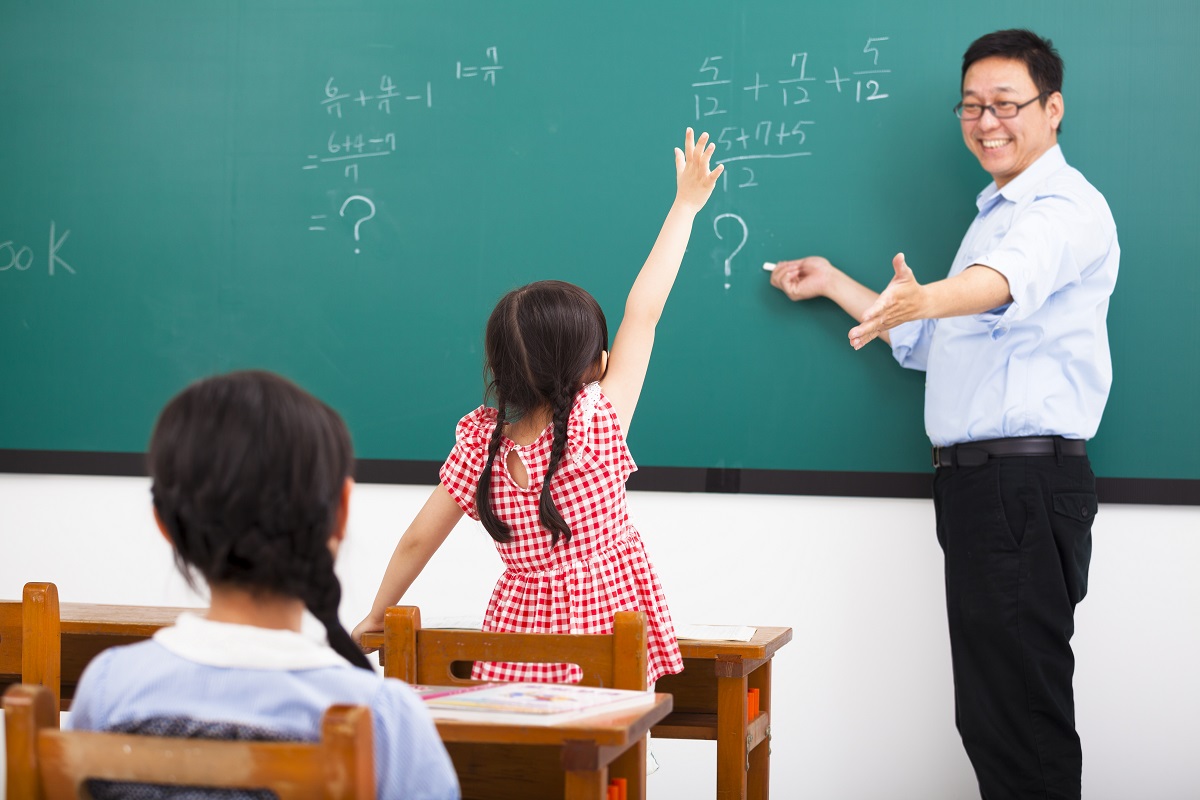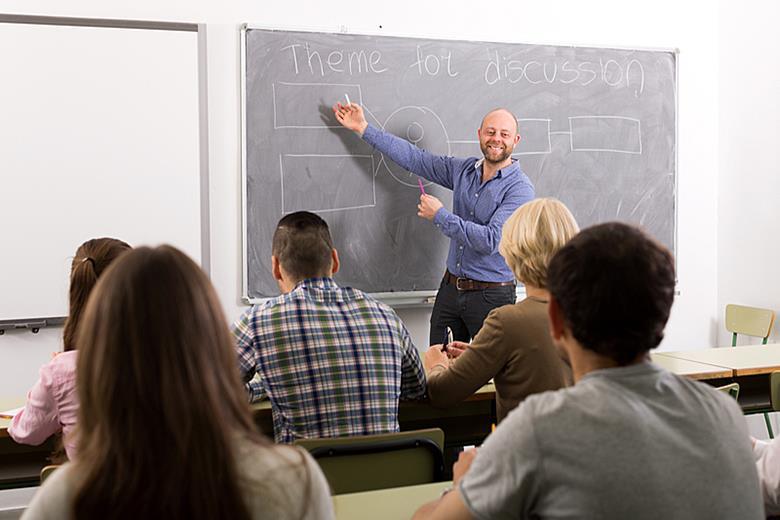Affordable Primary Science Tuition Singapore for All Learning Needs
Affordable Primary Science Tuition Singapore for All Learning Needs
Blog Article
Discover the Vital Benefits of Recognizing Primary Scientific Research for Young Students
The importance of key scientific research education and learning for young learners extends far beyond simple expertise acquisition; it serves as a basic pillar in establishing essential skills such as important reasoning, problem-solving, and imagination. Involving with clinical principles via interactive and inquiry-based activities not just grows curiosity but also prepares for durable, positive students. As we check out these advantages additionally, it comes to be clear that the implications for future scholastic and personal development are profound. What particular techniques can teachers utilize to maximize these benefits?
Enhancing Vital Assuming Skills
Promoting vital believing skills in young students is essential for their cognitive advancement and future academic success. Crucial thinking allows kids to examine information, review evidence, and make educated decisions, which are essential skills in today's information-rich culture. By participating in scientific query, young learners can improve these abilities as they explore ideas through trial and error, observation, and reasoning.
In primary science education and learning, educators can help with critical thinking by urging students to ask concerns, create hypotheses, and carry out experiments. This hands-on approach enables youngsters to practice analytical and create logical reasoning skills. When students check out the properties of materials or the concepts of activity, they learn to analyze their findings critically and attract conclusions based on proof.
Additionally, discussions and collective tasks can promote important thinking by providing possibilities for learners to verbalize their thoughts, difficulty assumptions, and consider diverse point of views. By creating a helpful setting that values inquiry and reflection, educators can nurture important thinking skills that empower young students to end up being long-lasting learners and independent thinkers. Ultimately, boosting these skills lays a durable structure for their future academic undertakings and personal development.
Promoting Curiosity and Expedition

Main science education and learning supplies a structured environment where young learners can discover different sensations via hands-on experiments and monitorings. By permitting them to connect with materials and participate in inquiry-based discovering, teachers create chances for kids to formulate hypotheses, examine their ideas, and draw conclusions. Such experiences support a feeling of wonder and exhilaration concerning scientific research.

Building Self-confidence in Trouble Addressing
Structure self-confidence in analytic is a crucial component of primary scientific research education and learning that encourages young students to come close to difficulties with resilience and creative thinking - primary science tuition Singapore. They develop essential abilities in important reasoning and evaluation when kids are urged to engage with scientific principles with hands-on activities and inquiry-based understanding. This process not just improves their understanding of scientific concepts however also promotes a sense of possession over their knowing
To construct self-confidence, educators need to produce a supportive setting where mistakes are viewed as possibilities for development as opposed to failings. This encourages pupils to take dangers and explore numerous services to troubles. By offering scaffolding and advice, instructors can aid students browse complex tasks, progressively enhancing their freedom in problem-solving scenarios.
In addition, joint knowing experiences, such as group tasks or experiments, can further improve pupils' self-confidence as they learn to articulate their thoughts and pay attention to others' perspectives. These communications nurture social abilities and enhance the concept that analytical is typically a collective venture. Ultimately, cultivating self-confidence in analytic prepares young learners for future academic challenges and outfits them with the devices needed for lifelong learning.
Urging Creative Thinking and Technology
In the world of main science education and learning, urging creative thinking and advancement is necessary for cultivating a vibrant discovering atmosphere. By fostering a culture where young learners can discover ideas and experiment freely, teachers aid students create important thinking abilities and an enthusiasm for discovery. Imagination in scientific research motivates children to ask concerns, develop theories, and take part in hands-on tasks that stimulate their creative imagination.
Integrating flexible projects and inquiry-based discovering into the curriculum permits trainees to share their distinct viewpoints and solutions. For example, when charged with addressing a problem pertaining to their environment, trainees can conceptualize numerous methods, causing inventive results that display their originality. This not only strengthens their understanding of clinical principles but likewise imparts a feeling of ownership over their discovering procedure.
Furthermore, innovative scientific research education nurtures partnership amongst peers, as students commonly share concepts and build on each other's understandings - primary science tuition Singapore. This collective spirit advertises not only development yet likewise crucial social visit the site abilities. Therefore, by prioritizing creative thinking and technology in key scientific research education and learning, we equip young learners to think critically, welcome obstacles, and picture opportunities, laying a solid navigate here foundation for lifelong learning and expedition
Planning For Future Discovering Difficulties
Young learners' ability to navigate future learning obstacles depends upon a solid structure in main science education and learning. This fundamental understanding outfits pupils with essential assuming skills and a systematic approach to analytical, essential for taking on complex problems in an ever-evolving globe. Key science cultivates inquiry-based discovering, encouraging pupils to ask concerns, discover hypotheses, and take part in hands-on experiments.
As they establish these skills, learners come to be skilled at evaluating information, recognizing patterns, and attracting informed verdicts. Such proficiencies are essential not only in clinical fields however also in technology, math, and engineering (STEM), where interdisciplinary expertise is significantly important.
In addition, main scientific research education and learning grows a sense of inquisitiveness and resilience in young students, enabling them to watch challenges as possibilities for growth. As they experience and overcome barriers in their scientific expeditions, they build self-confidence in their ability to introduce and adjust.
Inevitably, a strong foundation in main scientific research not just prepares young students for academic pursuits however likewise furnishes them with the devices necessary for lifelong understanding and flexibility in a rapidly altering international landscape. By spending in primary science education, we are buying the future possibility of our students.
Verdict
Understanding primary scientific research is important for young learners, as it promotes important reasoning, inquisitiveness, and creative thinking. Involving with clinical ideas with hands-on experiments enhances analytical abilities and builds resilience. This fundamental understanding not only equips pupils to assess data and recognize patterns yet additionally supports an inquiry-based state of mind. Inevitably, the advantages of primary scientific discover this info here research education prepare youngsters for future scholastic pursuits and impart lifelong learning routines important for thriving in an ever-evolving globe.
The significance of main scientific research education for young students extends much past simple expertise acquisition; it offers as a fundamental pillar in creating vital abilities such as vital reasoning, analytical, and creative thinking. By creating an encouraging atmosphere that values questions and reflection, teachers can support crucial believing abilities that empower young learners to end up being long-lasting learners and independent thinkers. Therefore, by focusing on creativity and advancement in primary scientific research education and learning, we empower young learners to assume critically, accept obstacles, and envision opportunities, laying a solid foundation for lifelong discovering and expedition.
Young students' capability to browse future understanding obstacles pivots on a strong structure in key scientific research education and learning.Recognizing key scientific research is important for young students, as it cultivates critical reasoning, curiosity, and imagination.
Report this page